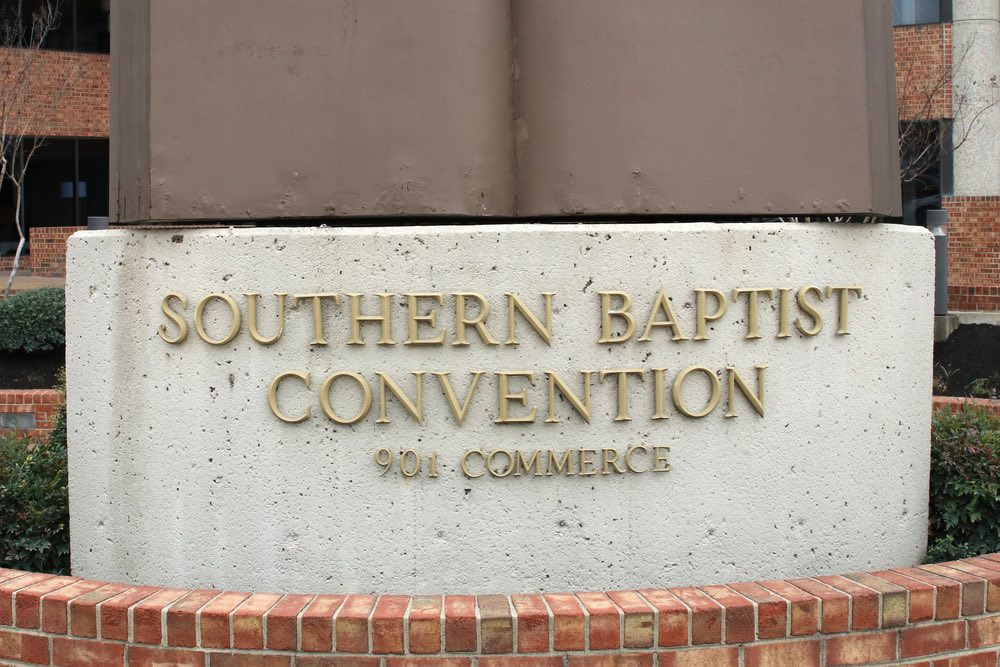
The Southern Baptist Convention remains within the throes of some enormous internal struggles to determine the direction of the nation’s largest collective of churches. Much of the tension has centered around the SBC’s approach to racism, particularly the use of Critical Race Theory in understanding how race operates in the United States. Now, a group of SBC members led by presidential nominee Mike Stone is championing a new resolution condemning CRT and Intersectionality. But other pastors, like Dwight McKissic, are blasting the resolution as “the most racially divisive resolution ever proposed in the SBC.”
“In an effort to provide leadership with clarity, compassion, and conviction, I will submit this resolution to the 2021 Resolutions Committee,” tweeted Stone, pastor of Georgia’s Emmanuel Baptist Church. “Over 50 others have already agreed to jointly submit this resolution. If you are SBC, you can join us.”
New SBC resolutions must be submitted by the end of May in order to be considered for the SBC’s big annual conference this June.
McKissic is the senior pastor of Arlington, Texas’ Cornerstone Baptist Church, and has argued that CRT can be useful for helping churches understand the ways race and power operate in the U.S. He condemned the resolution, noting that it was “interesting that there is not one African American lead or senior pastor on this list of signatories.” He said that what the SBC does with the resolution will be a “defining moment” for a convention that seems cruising towards just such a moment, one way or the other.
Even as the SBC has lost some of its biggest champions like Beth Moore and Dr. Russell Moore, a vocal group of SBC leaders and members are making a lot of noise about what they perceive as a liberal tilt among some high-profile Southern Baptists and are attempting to mount a conservative resurgence.
CRT has been a source of huge controversy both within the SBC and the country at large. It’s an academic lens for interpreting society through striations of power which have been, according to CRT, implemented and often sustained by white supremacy in this country. This theory of white supremacy is distinct from the more common way Americans think about racism, which has to do with individual feelings of racial bias. These two ways of thinking about racism are not mutually exclusive, but a growing movement of SBC leaders has sought to condemn CRT even as a wider group of conservative politicians have banned its use in schools.
In 2019, the SBC adopted Resolution 9, “On Critical Race Theory And Intersectionality,” which stated that while Critical Race Theory and Intersectionality are “alone …insufficient to diagnose and redress the root causes of the social ills that they identify,” did acknowledge that the academic movement could be useful in providing “analytical tools” that could “aid in evaluating a variety of human experiences.”
Stone’s new resolution would seek to flatten that nuance, stating instead that “Critical Race Theory and Intersectionality are ideologies rooted in Neo-Marxist and postmodern worldviews, by which our civilization is being deconstructed around our families, communities and nations, which make them incompatible with Scripture.”
This new resolution would echo last December’s controversial joint statement from all six SBC seminary presidents, condemning CRT as “incompatible with the Baptist Faith and Message.” That statement led to a number of Black churches dissolving their association with the SBC, including John Onwuchekwa who wrote that the presidents’ “stand against racism rings hollow when in their next breath they reject theories that have been helpful in framing the problem of racism.”
Stone’s resolution has received pushback from other SBC members, like Tennessee pastor Grant Gaines, who said it relies on the flawed logic that Christians can’t use any analytical tools developed by people who are not Christian. “It’s simply not true that an analytical tool is useless if it’s rooted in a secular worldview (which is what Mike’s resolution claims),” he tweeted. “That would mean we could literally learn nothing from non-Christians, since all of them have a secular worldview, which I’m sure Mike would agree is absurd.”
The SBC’s issues with racism go back to its very founding, when it officially split with the Northern Baptists over a disagreement about whether or not slaveholders could be missionaries. In 2020, current SBC president J.D. Greear acknowledged the racist roots of the organization he leads, saying “we know that is sinful. That is wrong.” However, McKissic drew a comparison between the SBC’s founding in slavery and its current resistance to utilizing CRT to understand the ongoing legacy of anti-Black racism in America, saying “in both instances, their actions were against the best interests of AAs [African Americans].”






















